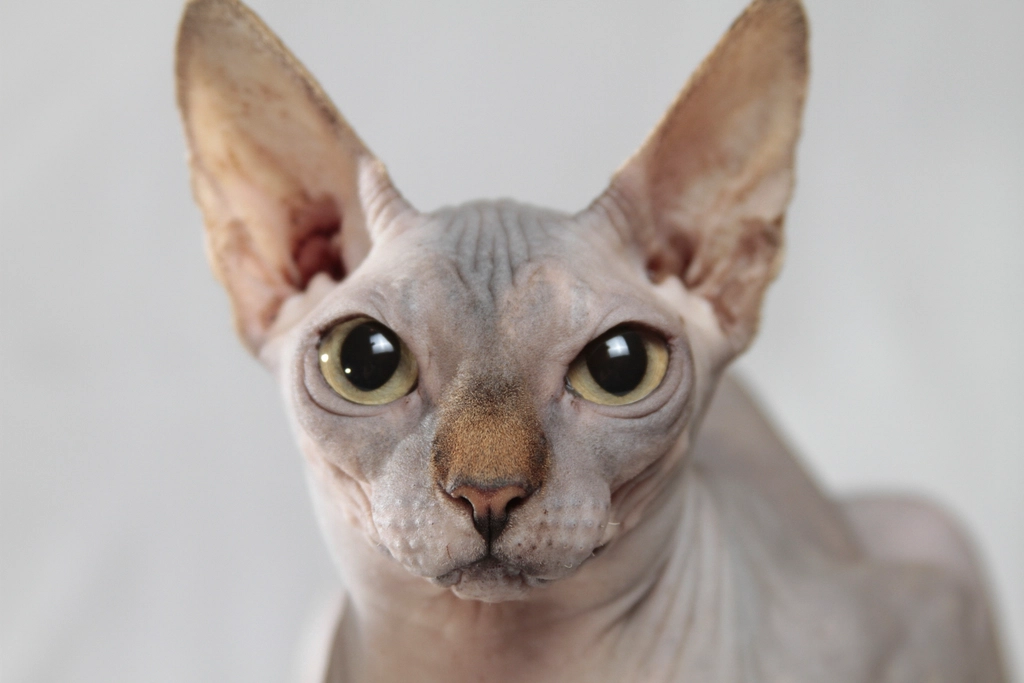Vaccinations are crucial for maintaining the health of your Sphynx cat. Just like other breeds, Sphynx cats are susceptible to a variety of contagious diseases that can be prevented through a well-planned vaccination schedule. In this post, we’ll cover the essential vaccines for Sphynx cats, when they should be administered, and why they’re necessary for both indoor and outdoor cats.
Why Vaccinations are Important for Sphynx Cats
Vaccinations protect your Sphynx cat from harmful viruses and bacteria that can cause severe illness or even death. Diseases such as Feline Viral Rhinotracheitis, Calicivirus, and Panleukopenia are highly contagious and can spread rapidly, even among indoor cats. Rabies is another deadly disease that affects both cats and humans, making vaccination a must.
Vaccinating your cat not only protects them but also reduces the spread of diseases within the cat population. By ensuring your Sphynx is up to date on vaccinations, you contribute to herd immunity, which helps prevent widespread outbreaks.
Read more about Common Health Issues in Sphynx Cats.
Essential Vaccines for Sphynx Cats
Core Vaccines
The core vaccines are those that every cat should receive, regardless of their lifestyle. These vaccines protect against the most dangerous and widespread diseases.
- FVRCP Vaccine
The FVRCP vaccine protects against Feline Viral Rhinotracheitis, Calicivirus, and Panleukopenia. These three diseases can cause respiratory infections, severe oral ulcers, and even death in kittens. This vaccine is often called the “distemper shot” and is administered as a series of boosters during kittenhood. - Rabies Vaccine
Rabies is a fatal disease that can affect both animals and humans. Most states require the rabies vaccine by law, even for indoor cats. Rabies is transmitted through the bite of an infected animal, and once symptoms appear, the disease is almost always fatal.
Non-Core Vaccines for Sphynx Cats
Some vaccines are recommended based on your cat’s lifestyle and environment. These are known as non-core vaccines, and they are typically given to cats that go outdoors or are exposed to other animals.
- Feline Leukemia Virus (FeLV) Vaccine
FeLV is a serious virus that weakens a cat’s immune system and can lead to secondary infections, anemia, or cancer. The FeLV vaccine is recommended for cats that go outside or live in multi-cat households where FeLV may be present. - Bordetella Vaccine
Bordetella is a bacterial infection that causes respiratory issues in cats. While not typically a concern for indoor cats, those that go to grooming salons, boarding facilities, or are in contact with other animals may benefit from this vaccine.
Vaccination Schedule for Sphynx Cats
Kittens receive a series of vaccinations in their first few months of life, followed by annual booster shots to maintain immunity.
- FVRCP (Feline Distemper) Schedule
Kittens should receive their first dose of FVRCP between 6 and 8 weeks of age, with booster shots every 3 to 4 weeks until they are about 16 weeks old. Adult cats will receive a booster annually or every three years, depending on the vaccine used. - Rabies Vaccine Schedule
The first rabies vaccine is typically given at 12 to 16 weeks of age. In most cases, this vaccine is then administered annually or every three years, depending on local regulations and the type of vaccine used. - FeLV Vaccine Schedule
Kittens can start receiving the FeLV vaccine at 8 weeks old, with a second dose given a few weeks later. Annual boosters are recommended for cats at risk of exposure.
Post-Vaccination Care for Sphynx Cats
After receiving vaccines, your cat may experience mild side effects such as lethargy, swelling at the injection site, or a slight fever. These side effects typically resolve within 24 to 48 hours. However, if your cat exhibits more severe symptoms, such as vomiting, diarrhea, or difficulty breathing, contact your vet immediately, as these could indicate an allergic reaction.
To help keep your Sphynx comfortable after vaccination:
- Provide a quiet, comfortable space where they can rest.
- Monitor them for any signs of discomfort or pain.
- Offer water and food, but don’t worry if they eat or drink a little less than usual for a day or two.
Internal Link: Learn how to Keep Your Sphynx Comfortable After Shots.
Cost of Vaccinations for Sphynx Cats
The cost of vaccinations will vary depending on your location and the veterinary clinic, but here’s a general estimate:
- FVRCP vaccine: $15 – $25 per shot
- Rabies vaccine: $10 – $20
- FeLV vaccine: $25 – $40
While vaccinations represent an upfront cost, they are much cheaper than treating diseases like Panleukopenia or FeLV, which can be life-threatening and costly to manage.
Conclusion
Vaccinating your Sphynx cat is one of the most important things you can do to protect their health and prevent serious diseases. Following the proper vaccination schedule, staying up to date with boosters, and consulting your vet about any additional non-core vaccines will keep your Sphynx healthy and safe. Don’t wait until it’s too late—talk to your vet today about the best vaccination plan for your cat.

